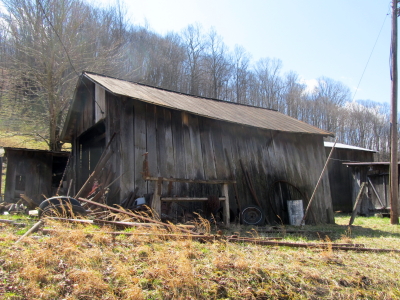
The old blacksmith shop, hanging on at Gip
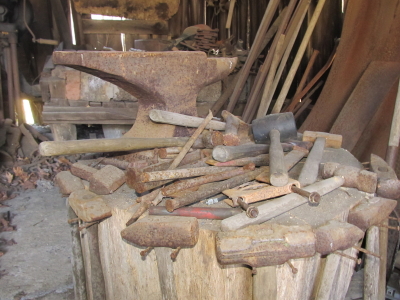
Smithy tools still in place from last use
Original Story Bob Weaver 2013/Updated 2022
A Braxton County family provided a necessary service to its' village, a blacksmith shop. Most every community had one through the early part of the 20th Century.
Upton See, born in 1889, was the village smithy at Gip, near the Calhoun County line, a shop inherited by his son, Arnett See, who passed away in 2012 at the age of 88.
Gip was suppose to be named Gibson, but somehow got shortened.
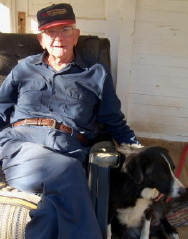
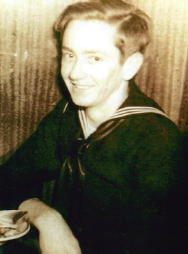
Farmer Arnett See who was also a heavy equipment
operator, school bus driver and veteran of WWII,
with his dog, taken before his passing in 2012, with his beloved dog Blaze
Visiting the old shop, most fascinating is the placement of the equipment and tools, as if they were laid down after their last use the day before.
The old shop stands on a bank across the road from the See homestead.
It's been years since they were last used, said Arnett See's son, Ledford "Butch" See, who lives on the family property whose ownership has now crossed three centuries.
Arnett See (1924-2012) was married to Janice Keeton (1927-2017) for 65 years, having two children, Ledfort (Butch) See of Gip and Shelia Criner of Ohio.
His father, Upton See was married to Orda Siers.


The See Homestead and farm is on Mill Fork Road, mostly a primitive road between Gip and Rosedale.
About 14 people repose, mostly family members, in a See cemetery on the farm.
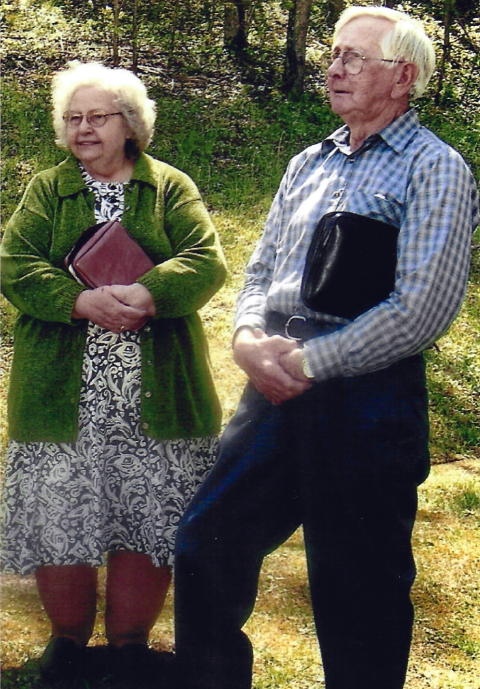
Arnett See (1924-2012) was married to Janice Keeton
(1927-2017)for 65 years, having two children, Ledfort
(Butch) See of Gip and Shelia Criner of Ohio
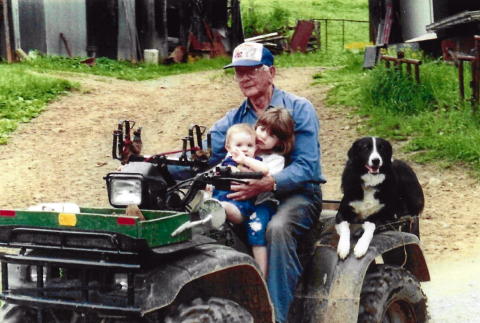
Arnett See entertaining grandchildren with his loved dog Blaze
THE VILLAGE BLACKSMITH
by Henry Wadsworth Longfellow
Under a spreading chestnut tree
The village smithy stands;
The smith, a mighty man is he,
With large and sinewy hands;
And the muscles of his brawny arms
Are strong as iron bands.
His hair is crisp, and black, and long,
His face is like the tan:
His brow is wet with honest sweat,
He earns whate'er he can,
And looks the whole world in the face,
For he owes not any man.
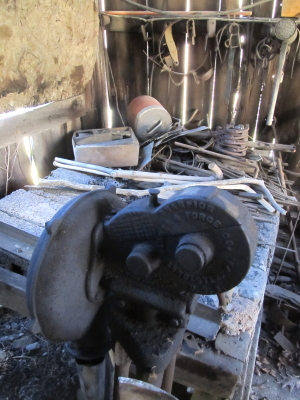
Blower and pounding table in old shop
Week in, week out, from morn till night,
You can hear his bellows blow;
You can hear him swing his heavy sledge,
With measured beat and slow,
Like a sexton ringing the village bell,
When the evening sun is low.
And children coming home from school
Look in at the open door;
They love to see the flaming forge,
And hear the bellows roar,
And catch the burning sparks that fly
Like chaff from a threshing floor.
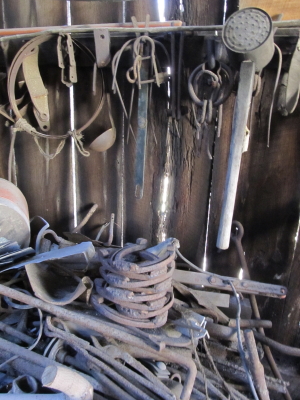
Horseshoes and lots of steel
He goes on Sunday to the church,
And sits among his boys;
He hear the parson pray and preach,
He hears his daughter's voice,
Singing in the village choir,
And it makes his heart rejoice.
It sounds to him like her mother's voice,
Singing in Paradise!
He needs must think of her once more,
How in the grave she lies;
And with his hard, rough hand he wipes
A tear out of his eyes.
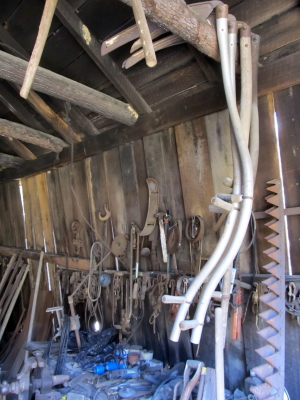
Shop holds farm tools for laborious work
Toiling,--rejoicing,--sorrowing,
Onwards through life he goes;
Each morning sees some task begin,
Each evening sees it close;
Something attempted, something done,
Has earned a night's repose.
Thanks, thanks to thee, my worthy friend,
For the lesson thou hast taught!
Thus at the flaming forge of life
Our fortunes must be wrought;
Thus on its sounding anvil shaped
Each burning deed and thought!
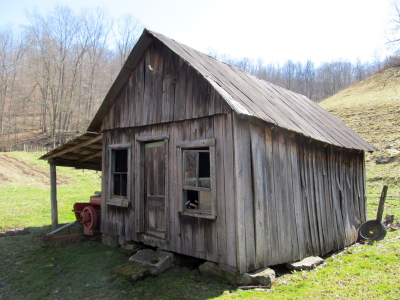
Nearby is building used by boarders in early 1900s who
came to work in the timber, getting wood for barrel staves
| 


